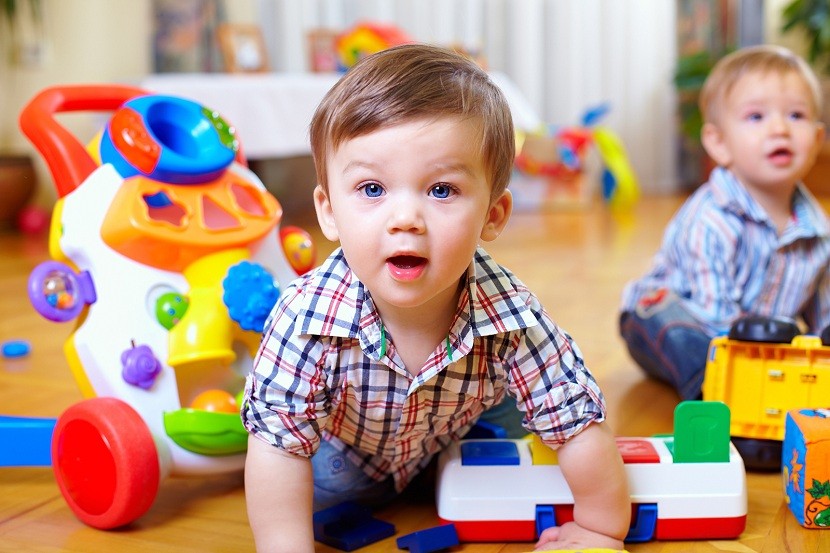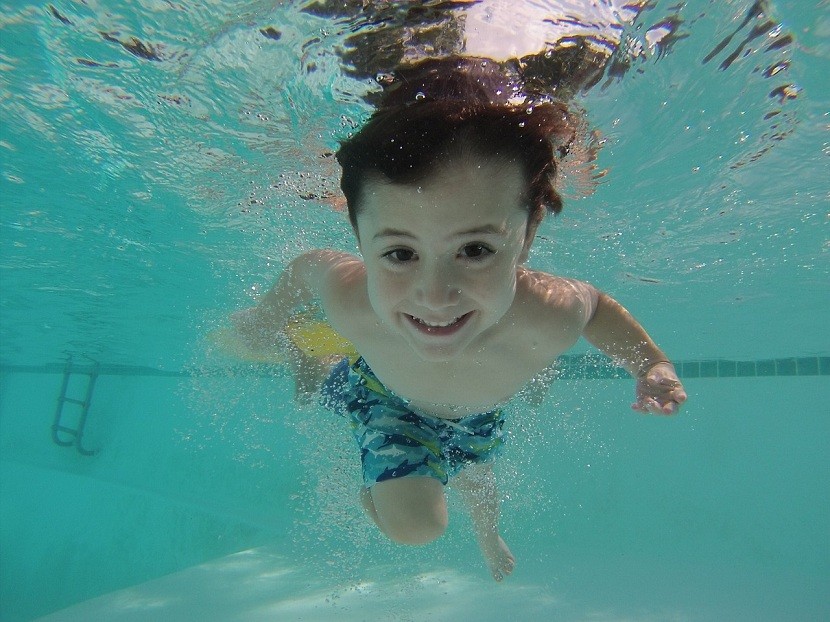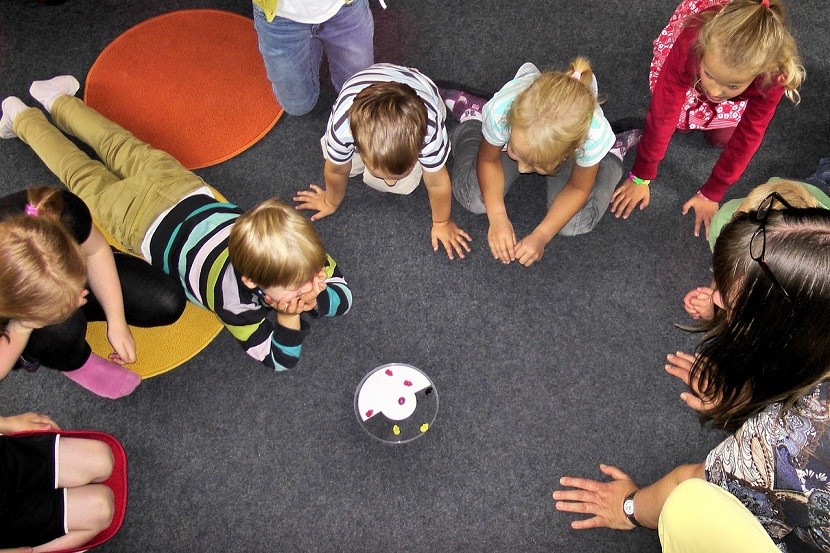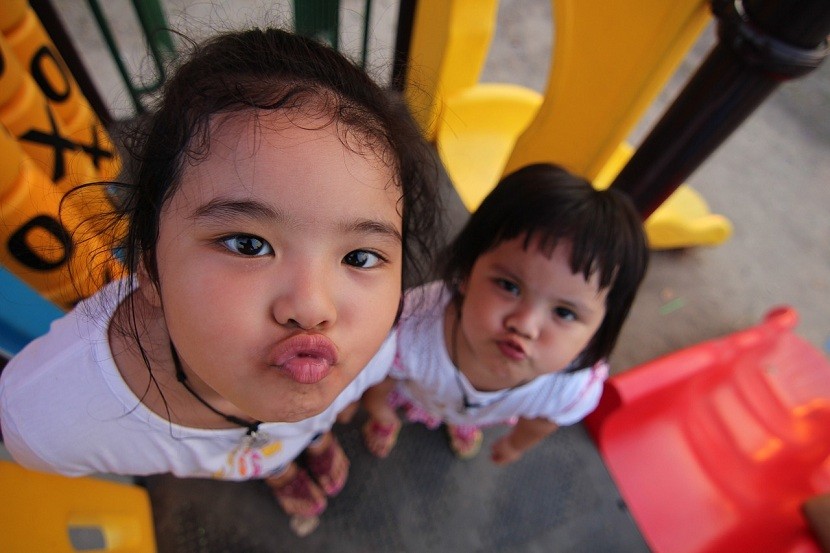Whether it is to find a better way of life, because you are an expatriate or to catch an opportunity you cannot say no to, many foreigners coming to Thailand bring with them husband / wife and children.
Recently arrived in Thailand, once briefly discovered the richness and attracts of this new country, once adapted to the novelties and specificities of living in the land of smiles, once tasted with appetite the scrumptious Thai cuisine, once found and comfortably installed in your new home, the first days of work going fine, you are nicely setting up your new everyday Thai life.

So today, we will take into account your children following you in this beautiful Thai adventure. If for the elder ones (the ones already following a scholar cursus) the only question will be to decide in which international school you will enroll them, for the younger ones (the ones being younger than 5 or 6 years old), numerous different options are to be considered. Nursery school is not mandatory in Thailand. However, you will maybe not be able to spend the whole day takingcare of your kids, for professional or other reasons. So you will have to either hire a nanny, or take them to kindergarten or nursery school. There, children will socialize and open up with other kids their age, and they will take part into many different educative and playful activities, as well as more formal lessons.
Kindergartens takes children from 1yo to 3yo, nursery schools hosts kids from 3yo to 5yo. The Thai educational system comprise 3 years for nursery school. School year is divided into two semesters, from May to October and from November to March. Kindergartens operate five days a week, opening the whole day from 8 a.m. up to 3.30 p.m. or 4 p.m.Kids learn to count, the basics of writing, they learn Thai and Latin alphabets.
Moreover, thanks to their great ability to learn and integrate new knowledge due to their young age, they will end up understanding speaking listening and reading Thai tangibly fast. Also, mostly in big cities, you will find numerous international kindergartens preschools and nursery schools, offering qualified and proficient teachers in early childhood learning. Very often, these international schools are asking tuition fee to be paid. They usually welcome kids from kindergarten to high school levels. Even if the quality of teaching is comparable to the one they can find in their home countries, many expats and foreigners prefer to take their kids to Thai schools, at least for the first years of their scholarship.

Choosing a kindergarten
One of the first important decision you have to make about your child’s future life is choosing his first school. This must be thought about carefully in order to find a place which will be safe and qualitative, but also to find a place where your child will like to go everyday.
Be aware that Thai love kids, and that many kindergartens will be very often better than the one you can find back home. Usually, you are just going to the kindergarten which is located nearby your place. In Thailand, the choice will be a little bit different, and you will have to take into consideration three major criterion:
Distance. You will want to find a kindergarten which is located close by your home, so compare the addresses and the time needed to get there as you will have to take your kid there and back two times a day five days a week or organize the transportation.
School’s environment. You will want for your kid a kindergarten which is friendly and warm welcoming where your child will learn and grow in a nice environment.
Cost. You will want to find a kindergarten matching your expectations and budget. So, you starts your search for the best kindergarten for your child, and your instinct leads you to Google. You quickly will realize that most of the kindergartens and pre-schools in Thailand don’t have websites. You will have to go the more traditional way, asking around, friends, colleagues.

From the information gathered, the best is to shortlist a few schools with a good reputation, good criticisms, and matching your criterions, distance, environment and budget. It is very important to ask around for opinions and advices, to know people’s previous experiences with the schools you shortlisted, to know what they think about the teachers, the programs and most of all to know why they choose that school instead of another one.
Once your selection made, first contact will be by phone to get your first idea, then to organize a visit of the school during opening hours and an appointment with the headmistress. You will be able to ask all the questions you want. Once on location, first impression will be the good one.
Pay attention to:
- The overall atmosphere. Is it friendly and warm?
- The buildings and playgrounds. Number and quality of the equipment, size of the playground, is it inside or outside, is there shadow?
- The classrooms. Number of children in each class, artwork of kids covering the walls (which should be the case in a good kindergarten).
- The teachers. Do they speak English or only Thai? (which to be honest will not be a big deal for the children as they will learn to speak fluent Thai very quickly) Do they look fun and friendly? Are they going toward the kids? Are they talking to kids? Do they encourage kids to participate to the activities?
Ask:
- What are the programs and objectives?
- What will your child do during the school days? (will he be kept inside or will he go outside? Are there enough books, toys, educational games?
- Is the school suggesting after school (extra) programs such as language, computer studies, music, art?
- Is the school opened all year round or is it closing during the vacations?
- The menus (know that Thai are feeding their kids very well, so schools usually give breakfast, morning snack, lunch, afternoon snack and sometimes kids can take some food away for the way back home).
Your kid will also be a very good indicator. If you see him going straight to the playground, playing with other kids or talking back to the teachers welcoming him, the choice is a good one.

Peculiarities
In general, Thai kindergartens are like many other kindergartens around the world. We will however point that the differences that exist are more cultural than educative.We can quickly go through the insignificant differences, such as not wearing shoes inside the buildings, something that everyone quickly understand and accept once spent a couple of days in the country, understanding that it is a rule of life everywhere.
Payment
Kindergarten will not accept credit cards or checks. You will have to bring in cash when you will register your child to his new school.
Uniform
Somehow old fashioned in our western societies, in Thailand, uniform is mandatory, whatever the academic level students are attending. Thai education emphasize collectivity rather than individualism. You will be asked how many uniforms you want to buy, knowing that there is a different one to wear depending on the day of the week (for example, Monday Tuesday Thursday is the usual uniform, Friday being sports day you will need a sport kit, Wednesday being a ‘free day’, kids can wear what they usually wear when they are not at school).
Religion
During the registration of your child in his new school, you will be asked about his religion. In Thailand, a country of many faiths, Buddhism being the most important one, some schools teach to the kids eligious principles through prayers and meditation at the beginning of the day. This will not be the case in each and every schools (surely not in international schools), but as strange as the question could sound, don’t be irritated by it.
After-school programs
These extras are сlasses which are not included in the regular teaching curriculum. Of course adapted to kids this age, you can add to the usual numbers alphabets or basics of counting writing and reading, schools suggest some additional teaching such as languages, computer studies, music.
These can be considered as options and it will add to the cost of registration to the school. Without these activities, a schoolday is a mix of playing, drawing, nap and some basic lessons.
Homework
Since their very early age, students have to do some homework on a daily basis (always adapted to their age in terms of quantity and complexity).
Tests
In Thailand, kids have to sit their firsts tests from the very beginning of the scholarship. All along their courses, children’s knowledge and progress will be evaluated.
When moving to a new country sounds like a big step ahead in life, some specific point have to be taken into consideration once you start to settle down in your new life. Moving with kids with bring some very important decision to make regarding their future, and one of them is choosing the right place for them to start the long process they will go through for a period of two decades and more, kindergarten!
Thailand is a very good place for their first steps out of home, in the big world. It has everything parents could dream about concerning early age care and teaching. With a huge variety of choices between local and international kindergartens, each of them offer very proficient methods, qualified staff and upscale facilities. The toughest decision to make will be for the parents. Some differences will appear between what they are used to in their home country and what they will discover here in Thailand, but this will just be details and will not affect their process of decision. The challenge will be to choose the best and right kindergarten for their children, considering some key requirements they can have such as location, educational environment and price, all of them put on perspective with some other minor points. It is impossible to say that an international kindergarten will be better than a Thai one in any aspect of education, activities or care for children.
One thing is sure, the reputation of Thai loving kids is everything but a myth, and this affection will be the core and most important thing kids could need.
 The site is in the process of being updated.
The site is in the process of being updated.